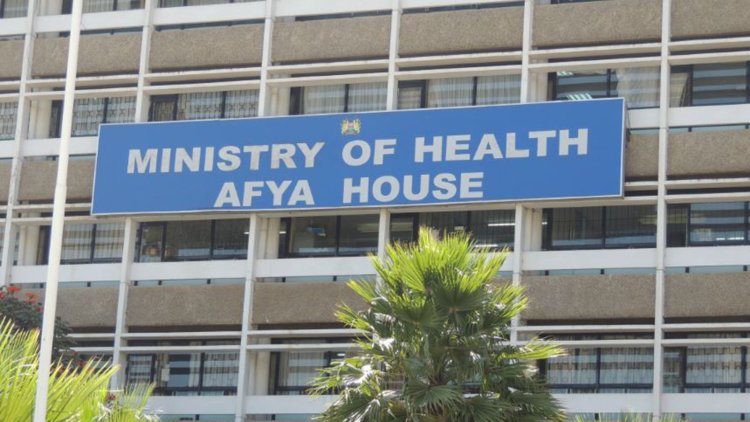Ministry Of Health Most Prone To Corruption- EACC
Nakhumicha vowed to be ruthless with the cartels in the cabinet docket that have proved to be insurmountable for her predecessors...

Health Cabinet Secretary (CS) Susan Nakhumicha Wafula has a mountain to climb to overturn the woes hitting the Ministry of Health if a report by the Ethics and Anti-Corruption Commission (EACC) is anything to go by.
In the report dubbed National Ethics and Corruption Survey 2021 released on Friday, December 30, the Ministry was ranked first amongst four institutions most prone to corruption.
The Ministry of Health ranked first with 18.8 per cent followed by the Chiefs/Village elders (14.3 per cent), Registrar of Persons (12.9 per cent) and Department of Civil Registration (10.3 per cent).

Afya House, headquarters of the Ministry of Health. /FILE
The report goes on to state that seeking medical services (27.8 per cent) was the service most prone to corruption followed by the registration/collection/renewal of a National Identification Card (14.8 per cent) and application/collection of Birth Certificates (14 per cent).
The Ministry however ranked second to the Ministry of Interior as institutions where one is most likely to encounter corruption and unethical practices.
In the same survey, the national average bribe increased from Ksh3,833 in 2018 to Ksh5,889 in 2021 and service seekers in Narok County paid the highest average bribe at Ksh42,652 followed by those in Mombasa (Ksh23,387), Mandera (Ksh13,168.13) and Nyandarua (Ksh11,109.09).
The Kenya Police (82.1 per cent) ranked first among government Departments and Agencies where one is most likely to encounter corruption and unethical practices followed by the Department of Registration of Persons (25.2 per cent) and Department of Immigration (17.3 per cent); and County health services such as ambulance, health facilities and cemeteries (18.7 per cent) and inspectorate -askaris (8.7 per cent) are most prone to corruption and unethical practices among the County Government Departments.
Unemployment (56.2 per cent) was ranked first as the most important issue facing the country today
followed by poverty (48 per cent) and corruption (43.7 per cent).
"Concern about potential harassment and reprisal/fear of victimization (60.2%), long distance to the reporting place/authority (57.1%), the reporting process being too complex and long (56%) affect a lot the decision not to report corruption or unethical practices. Over a quarter (27.1%) of the respondents who witnessed an incident of unethical conduct in a public office did not know where to report," the report read in part.
During her vetting in Parliament on Wednesday, October 19, Nakhumicha vowed to be ruthless with the cartels in the cabinet docket that have proved to be insurmountable for her predecessors, adding that she has had experience dealing with cartels on a small scale in the supply chain management in the health sector.
“I am looking like I am too weak to handle the cartels but I would like to assure you that these are people I have worked with just on a small scale but now it will be on a national scale,” she stated.
She outlined that she’s armed with a strategy which involves a two-thronged approach that involves process alongside procedure and rules alongside regulation.
“I am very sure we will break the cartels but I will seek the support of members through bills and acts because if health is working even the health of those cartels is taken care of,” Nakhumicha stated.







